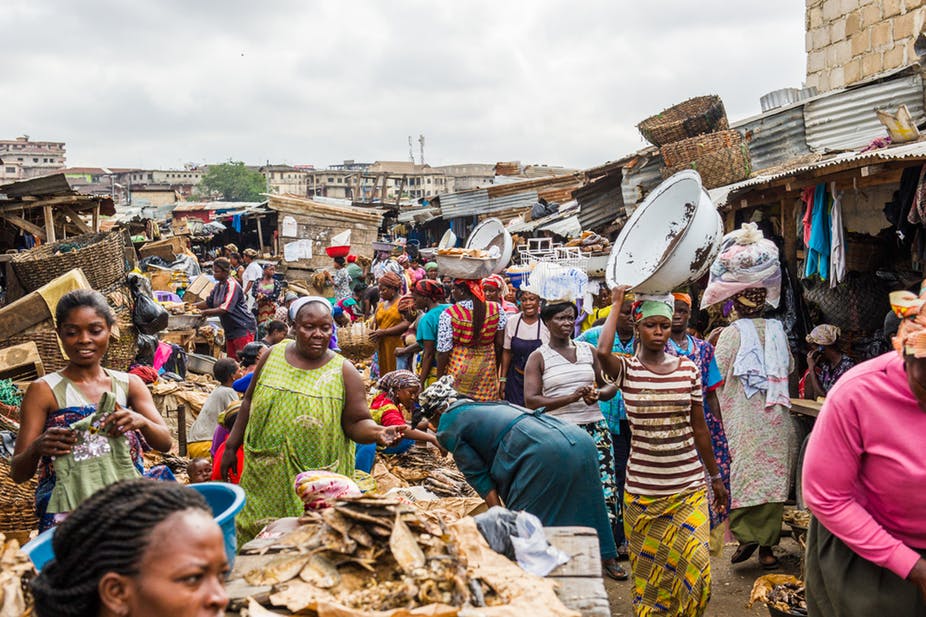Is The Housewife Alien To Igbo Culture?
Never ever accept ‘Because You Are A Woman’ as a reason for doing or not doing anything ~ Chimamanda Ngozi Adichie The above tweet which forms part of a thread on inheritance highlights some of the deficiencies in our culture. We have laws that are being regularly updated but these things still happen because of pervasive ignorance. How I wish the federal government will declare an emergency on education and revive MAMSER to ramp up the dissemination of information via local means outside the dominant electronic channels. Anyway, the tweet reminded me of the related but disturbing experience I’m about to narrate. In 1992, I was admitted to Nnewi teaching hospital for pneumonia. With the normal practice in Nigerian public hospitals being that the patient usually buys the drugs, I noticed that my cousin who attended to me always bought twice the recommended dosage of drugs each day. When I asked why he explained that his classmate’s husband, an elderly man, possibly in his 70s or 80s also had pneumonia and struggled to buy drugs. I was discharged after 9 days and asked to return for a check-up at a later date. On my return for the checkup, my cousin who drove me inquired about his classmate’s husband and was informed that he passed away. There were no mobile phones then so we drove to go and condole with the bereaved woman. The widow in her 30s I guess, started sobbing as we entered the living room. She told us that when I left the hospital she could no longer get the needed drugs for her husband because his relatives refused to fund his treatment. They asked her to deposit the man’s property documents as collateral before they can provide a loan. The problem was that she was a housewife with 4 kids none of whom had reached post-primary level. She was married many years after her husband’s first wife died without having children. So she was caught between the proverbial devil and the deep blue sea. Surrender the property to raise funds that could possibly save her husband or hold on to it as a backup to fund the training of her kids supposing her husband passes on. She sought counsel from friends after efforts to raise funds failed. Apparently, she was advised to settle for the latter option as her husband died the week after I left the hospital. The fierce debate we had on our way back remains vivid. I opined that the woman should have taken the loan to save her husband and the man can sort things out with his relatives thereafter. While my cousin claimed he saw the man’s condition and that survival was not certain so the woman was right not to have gambled. I found this thought process quite bizarre even in my sympathy for a young widow faced with the challenge of raising 4 children. Women, especially wives must seek economic empowerment and men must encourage this in our society. I have peers who would not let their wives work or engage in any form of enterprise. What the hell is that? In this age and time? Sometimes I wish I can just teleport these men to the Western world where the system is such that the financial burden of households is better managed with combined income. Yet it would seem that for Africans, particularly Igbos, the economic subjugation of women was a colonial import. I will even argue that as patriarchal as the pre-colonial Igbo society may have been, the housewife is alien to our culture and was magnified by the colonialists. This position is supported by the fact that feminism is equally a foreign concept as well as the prominence attached to economic empowerment in our marriage customs. Of course, our ancestors expected their wives to be submissive, do domestic work, and bear children. But it is also a fact that farmland and livestock are usually made available for a prospective bride to manage before the union is consummated. Unlike what we have now with urbanization meaning that a bride who is a banker obviously won’t need a chicken pen to earn a living, that provision constituted the base of economic freedom for the Igbo wife back then. My late grandmother was a serial entrepreneur who engaged in different economic endeavours. Before the Biafran war, she used to trek to Oye Agu Abagana or Afor Igwe Umudioka with her colleagues on the respective market days to trade. I’m talking about a distance of 15–20 km. She equally cultivated innumerable farmlands and had a rich barn. Back then Akpu (cassava) was the more popular staple and she always had them fermenting in 2 big drums because she never ate Garri. She always had goats and chicken such that ije gbota nni eghu (getting feed for the goats) was a daily chore I enjoyed with the numerous houseboys that passed through her tutelage. Anu mkpo and azu kojim (dry meat and fish) never lacked in her ngiga as onugbu soup was her favourite and you dare not cook it without protein. The wealth from her enterprise earned her the alias Ogodu nwelu afha or Oke ogodu. This literally translates to a wrapper with a name or a great wrapper because she preferred Ntorika George, Hollandis Wax, or Lace to the average textile wrapper. Stacked in metal chests popularly called Oriental, I remember that for many years after her demise, we still picked wrappers from there for condolence visits. She was an umbrella for widows and less privileged women that usually gather each morning to process either egusi, ojawara or abacha mmili. They will then go down to Eke Amawbia for igba mgbele (trading) and return in the evening for accounting duties. As a kid, I was inspired by her industry and enterprise. For me, she epitomized the Igbo woman of her time. Back to the first part of my story. I couldn’t process my cousin’s line of argument because I




